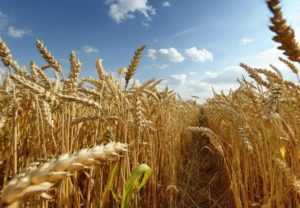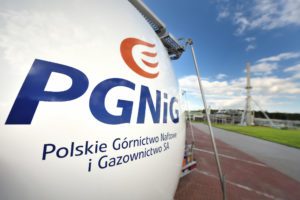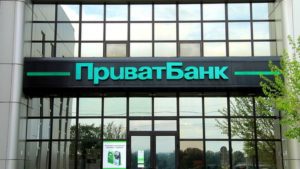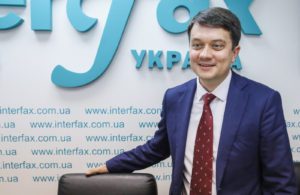
Ukraine’s Agricultural Policy and Food Ministry has revised upwards its forecast for grain harvest in 2019 from 70.8 million tonnes to 71.1 million tonnes, the ministry reported on its website. The wheat production will total 27.8 million under the ministry’s forecasts.
According to the ministry, in September the ministry and market participants will decide on acceptable balance of grain exports and will sign a memorandum of understanding over the volume of grain exports in 2019/2020 agricultural year.
“The main document of the memorandum, the so-called agreement of understanding for 2019/2020 agricultural year, will be sent to all participants of the grain market before the end of this week,” the ministry said.
As reported, Agricultural Ministry and grain market participants in August 2018 memorandum envisaged 16 million tonnes of wheat export for 2018/2019 agricultural year against 16.5 million tonnes envisaged for a previous marketing year.

Energy Resources of Ukraine (ERU) has signed an agreement with Polish-based PGNiG on the acquisition and imports of American natural gas to Ukraine.
“Already in early November, within the framework of the agreement, liquefied gas will arrive at the Polish LNG terminal named after former president Lech Kaczynski in Swinoujscie. LNG will enter the Polish transmission system after regasification, from where it will be brought to Ukraine through gas pipelines in Hermanowice and will be transferred to ERU. Deliveries for ERU will be implemented by the end of 2019,” the trader said in a press release.
According to PGNiG head Piotr Wozniak, today the only limitation for increasing exports to Ukraine is the capacity of Polish pipelines in the direction of Silesia-Subcarpathia.
“We expect that the capacity of these pipelines will be expanded by 2021,” he said.

PrivatBank (Kyiv) has sold through OpenMarket (SETAM) nine tank farms in working condition for a total cost of UAH 15.67 million against an initial cost of UAH 9.4 million, the press service of SETAM state enterprise has reported.
According to the report, oil depots are situated in four regions: Kirovohrad, Zaporizhia, Zhytomyr and Sumy regions.
According to the press service, in Kirovohrad region one regional oil depot was sold at a starting price of UAH 1.989 million, another one located in the village of Hruzke of Kirovohrad region was sold for UAH 3.715 million under the starting price of UAH 0.79 million.
In Zhytomyr region, two tank farms were sold: for UAH 2.1 million under the starting price of UAH 0.654 million in the village of Yablunets, and another one for UAH 0.884 million under the starting price of UAH 0.553 million in the village of Zarudyntsi.
PrivatBank also sold at the auction three tank farms in Sumy region: in Lebedyn urban-type settlement for UAH 1.5 million with the starting price being UAH 0.644 million, in the village of Krasnopillya for UAH 1.098 million, and in the village of Bilany for UAH 0.789 million under the starting price of UAH 0.125 million.
Two tank farms were sold in Zaporizhia region: in Komyzh-Zorya urban-type settlement and in the town of Polohy tanks farms were sold under the starting prices – UAH 2.497 million and UAH 1.097 million respectively.
As reported, in July PrivatBank put up seven tank farms in a working condition for sale through OpenMarket for a total worth of UAH 1.059 billion.

The candidate for the post of chairman of the Verkhovna Rada (Ukrainian Parliament) of the ninth convocation from the Servant of the People faction, Dmytro Razumkov, has stated one of the tasks would be to achieve economic growth in Ukraine at the level of 5-7% next year. “Launching the mechanism of a rapid economic growth. Our goal is the economic growth of 5% to 7% as early as next year. In addition, this should be growth not only on paper, in statistics, but also consistent with what people feel every day in their life,” Razumkov said at a plenary meeting before voting for his appointment as chairman of parliament.
He also announced the need for deregulation, legalizing capital.
He also announced the task of optimizing the functionality of state bodies, eliminating duplication of their functions.
At the same time, he emphasized that one of the tasks would be to create conditions for fair and independent justice.

Parliamentarian from the Servant of the People Party Dmytro Razumkov has been elected chairman of the Verkhovna Rada of the 9th convocation.
Some 382 deputies voted for him at a plenary meeting of the first session of the newly elected parliament on Thursday, an Interfax-Ukraine agency correspondent reported.
The European Solidarity faction voted against – 26 deputies.

Ukraine’s new Cabinet of Ministers may not include a Ministry of Agricultural Policy and Food. A source of Interfax-Ukraine with knowledge of the situation confirmed this information.
According to the source, the ministry’s liquidation was discussed for about a month.
The European Business Association (EBA) stated its concern about the possibility of liquidating the ministry and attaching parts of it to other ministries or agencies, as did specialized agricultural associations, such as the Ukrainian Grain Association, the Ukrainian Agribusiness Club, the Ukrainian Agrarian Forum, the Agrarian Union of Ukraine, the Ukrainian Agrarian Confederation and others.